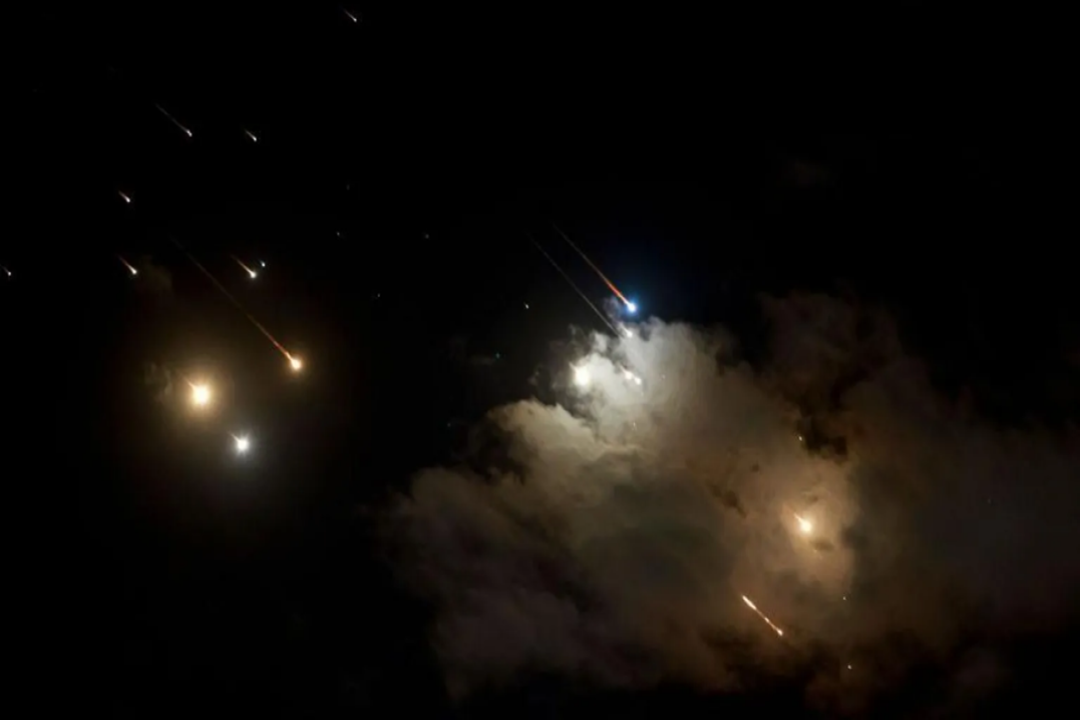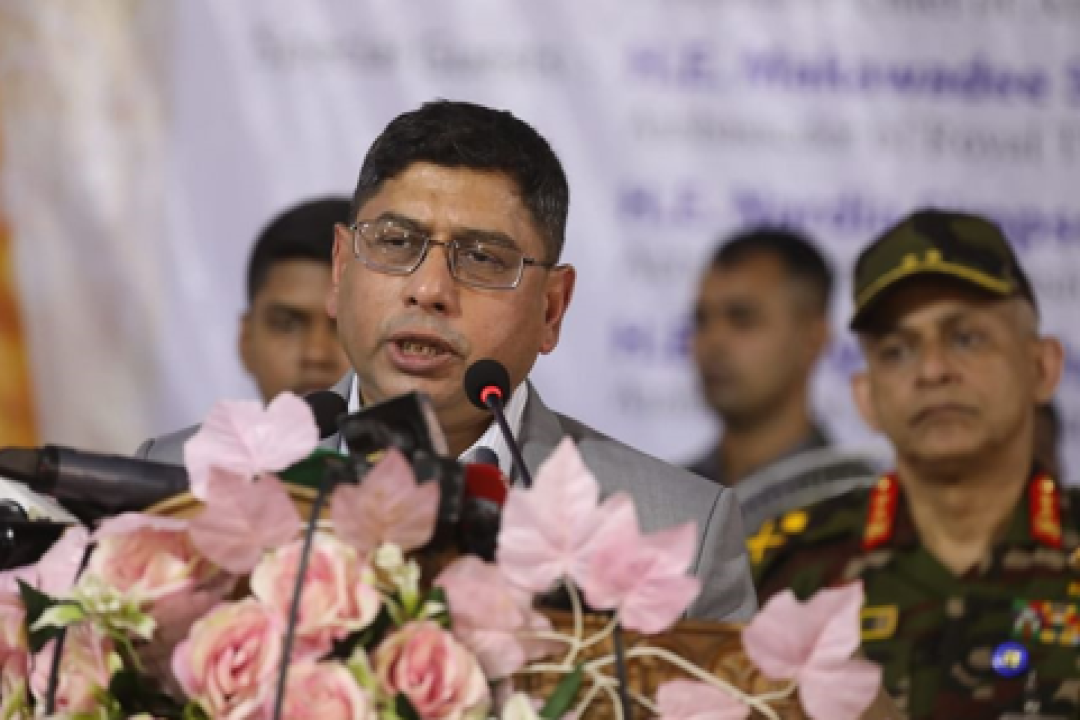Israel says Iran has launched more than 180 missiles towards the country in a large-scale attack that has further heightened fears of an all-out regional war, BBC reported.
Millions of people rushed to shelters before explosions lit up the night skies above Tel Aviv and Jerusalem. A man was killed by falling missile debris in the city of Jericho in the occupied West Bank, Palestinian officials said.
Israel's Prime Minister Benjamin Netanyahu said Iran had made a “big mistake” and “will pay for it”.
Iranian state TV said Iran had fired 200 missiles towards Israel. These included hypersonic weapons, it said, while the Islamic Revolutionary Guard Corps said the strikes were in retaliation for the killings of the leaders of its allies Hezbollah and Hamas.
Within hours of the massive barrage on October 1, in the evening local time, Israel’s military resumed air strikes against what it said were Hezbollah targets in the southern suburbs of the Lebanese capital, Beirut.
US President Joe Biden said the Iranian missile attack appeared to have been “defeated and ineffective”. The US Department of Defense confirmed its forces had helped shoot down missiles in support of its Middle East ally.
The Israel Defense Forces (IDF) said the majority of missiles were “intercepted by Israel and a defensive coalition led by the United States”.
UN secretary general Antonio Guterres condemned what he called the “broadening conflict in the Middle East”, adding: “This must stop. We absolutely need a ceasefire.”
There was support for Israel from allies including Britain, France, Japan and Australia - with UK Defence Secretary John Healey issuing a statement saying the armed forces “had played their part in attempts to prevent further escalation in the Middle East”.
The missile attack came hours after Israeli troops began an invasion of southern Lebanon to remove what the military said were “Hezbollah terror targets” in border villages that posed a threat to residents of northern Israel.
Israel has gone on the offensive against the Iran-backed Shia Islamist political and military organization after almost a year of cross-border hostilities sparked by the war with Hamas in Gaza, saying it wants to ensure the safe return of residents of border areas displaced by Hezbollah rocket, drone and missile attacks.
Air raid sirens sounded all across Israel at around 19:30 local time (16:30 GMT), as the IDF warned missiles had been launched from Iran.
Within a few minutes in Jerusalem, loud explosions were heard in Jerusalem as missiles flew overhead and were intercepted by Israeli air defence systems.
Videos shared on social media showed streams of light as the missiles flew over Israel, and clouds of smoke as they were intercepted or detonated on impact.
Just over an hour later, the IDF announced that people were allowed to leave their protected spaces because it did “not identify any additional aerial threats from Iran”.
Later, IDF spokesman Rear Admiral Daniel Hagari said in a statement that “there were a small number of hits in the center of Israel, and other hits in Southern Israel”.
“The majority of the incoming missiles were intercepted by Israel and a defensive coalition led by the United States.”
He added: “Iran’s attack is a severe and dangerous escalation. There will be consequences.
“Our defensive and offensive capabilities are at the highest levels of readiness. Our operational plans are ready.
"We will respond wherever, whenever, and however we choose, in accordance with the directive of the government of Israel.”
US National Security Adviser Jake Sullivan told reporters at the White House that he did “not know of any damage to aircraft or strategic military assets in Israel”.
“In short, based on what we know at this point, this attack appears to have been defeated and ineffective,” he added.
He also condemned the attack as “a significant escalation” and warned: "We have made clear that there will be consequences, severe consequences, for this attack, and we will work with Israel to make that the case.”
On September 30, Iran's chief of staff Maj Gen Mohammad Bagheri told state TV that it would hit infrastructure across Israel if it decides to strike back.
The barrage “will be repeated with bigger intensity and all infrastructure of the regime will be targeted”, Mr Bagheri said.
Iran’s Islamic Revolution Guard Corps said it had targeted unspecified “sensitive security and military” centers in retaliation for the “violation of Iran’s sovereignty and the martyrdom” of Hamas political leader Ismail Haniyeh, who was killed by an explosion in Tehran in July that Iranian officials blamed on Israel, but Israeli officials did not claim.
The statement described the missile barrage as having been “in line with the legitimate right of the nation to defend itself”.
November 24, 2024
Dhaka set to sign defense deal with TokyoNovember 24, 2024
Magistracy power for officers of Armed Forces for another 60 daysNovember 24, 2024
Government to decide how long army will remain deployed in the fieldNovember 24, 2024
Army recovers huge cache of arms, ammunition from KNF denNovember 24, 2024
Army cautions against misuse of its name in jhut business: ISPRNovember 24, 2024
Singapore’s high commissioner meets Army ChiefNovember 24, 2024
Army chief visits Cox’s BazarNovember 24, 2024
65 citizens from Myanmar's tribal communities enter Bangladesh illegallyNovember 24, 2024
Who is Trump intelligence pick Tulsi Gabbard?November 24, 2024
Pentagon stunned after Trump picks Pete Hegseth for Defense SecretaryNovember 24, 2024
Ukraine marks 1,000 days of war with pledge to ‘never submit’ to RussiaNovember 24, 2024
Arrest warrants issued for Netanyahu, Gallant over war crimesNovember 11, 2024
Deputy Commander of US Indo-Pacific Command calls on Army ChiefNovember 11, 2024
Air chief off to China on nine-day visitNovember 11, 2024
Recruit batch parade of EME and ACC Corps heldFollow Us

50,000
Fans

50,000
Fans

50,000
Fans

50,000
Fans

50,000
Fans

50,000
Fans







